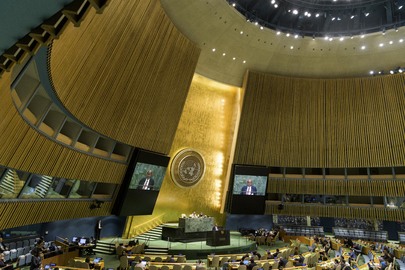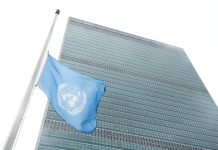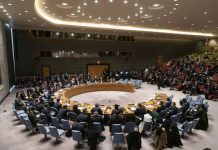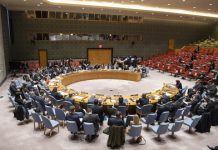UNCTAD 16 from 20 to 24 October will seek practical ways to restore predictability in trade, ease debt pressures and direct investment to the real economy.
“We are witnessing a transformational shift in multilateral trade and the decisions we make during UNCTAD 16 will impact the future of trade and global development policy and debates,” Rebeca Grynspan, the agency’s Secretary-General, said on Monday in the Swiss city.
Trade outlook and predictability
Ms. Grynspan warned that policy shifts and uncertainty “can be more disruptive than tariffs,” diverting investment, wiping out jobs and draining competitiveness, particularly in developing countries. She said restoring confidence and stability is “foundational” so smaller economies can plan and invest.
Despite geopolitical tensions, she reported resilience in the first half of 2025. Global trade expanded by roughly $500 billion, with goods up 5 per cent in value, services 6 per cent, and South–South trade (excluding China) 9 per cent. She credited developing countries with supporting second-quarter performance while cautioning that predictability must be rebuilt to keep trade driving growth and investment.
Investment that serves people
On finance, the UN official highlighted a widening human toll, noting that “3.4 billion people in the world live in countries that are spending more on servicing the debt than on health and education.”
She called for a fairer, more predictable and accessible financial system, pointing to follow-up from July’s Financing for Development Conference, including work on boosting affordable long-term capital and a borrowers’ club to strengthen countries’ negotiating and debt-management capacities.
Turning to investment flows, Ms. Grynspan noted that foreign direct investment into developing countries is declining and too often concentrates in traditional sectors and geographies.
“The goal is not just to attract investment, but to attract the right kind of investment,” she explained, citing priorities such as sustainable infrastructure, green energy, health, education, water and sanitation, agriculture and digital capacities that create long-term value.
She added that digital trade and data flows now underpin over 60 per cent of global GDP growth, while market concentration in cloud and generative AI raises inclusion risks that policy must address.
With regard to the Occupied Palestinian Territories (OPT), Ms. Grynspan said that UNCTAD will present its new report to its board in November, reiterating that the body estimates the time needed for the Palestinian economy to return to the pre-war scenario and not reconstruction costs, which fall to other agencies.
Conference outline
UNCTAD 16 will convene around 100 countries, including about 60 ministers and 40 vice-ministers, with 1,700 participants registered, seven ministerial roundtables, and forums on youth, gender, civil society and business.
The UN Secretary-General is expected to deliver a special address during the week. Discussions will span trade, finance for development, debt, investment, regional trade, supply chains, and technology including AI and the inclusive digital economy.
Ms. Grynspan stressed that trade, finance, investment and technology are “four pillars of development” and must be tackled together to make the global economy work for everyone, “especially for those who are the most vulnerable.”
Source of original article: United Nations (news.un.org). Photo credit: UN. The content of this article does not necessarily reflect the views or opinion of Global Diaspora News (www.GlobalDiasporaNews.com).
To submit your press release: (https://www.GlobalDiasporaNews.com/pr).
To advertise on Global Diaspora News: (www.GlobalDiasporaNews.com/ads).
Sign up to Global Diaspora News newsletter (https://www.GlobalDiasporaNews.com/newsletter/) to start receiving updates and opportunities directly in your email inbox for free.

























